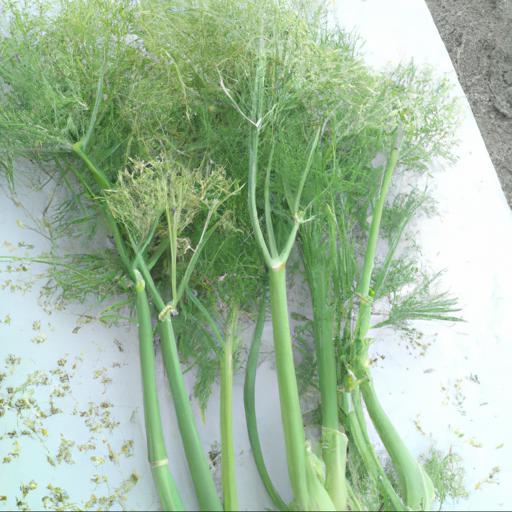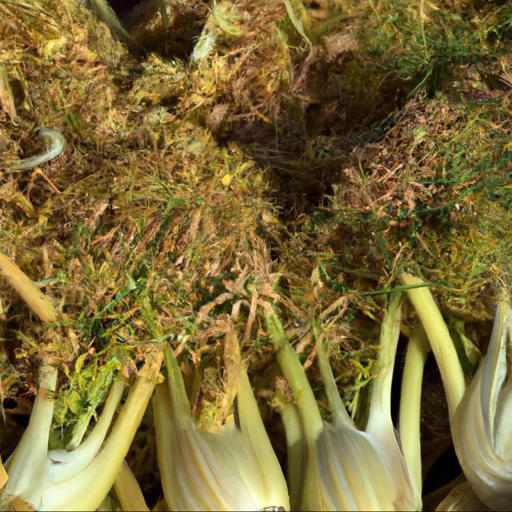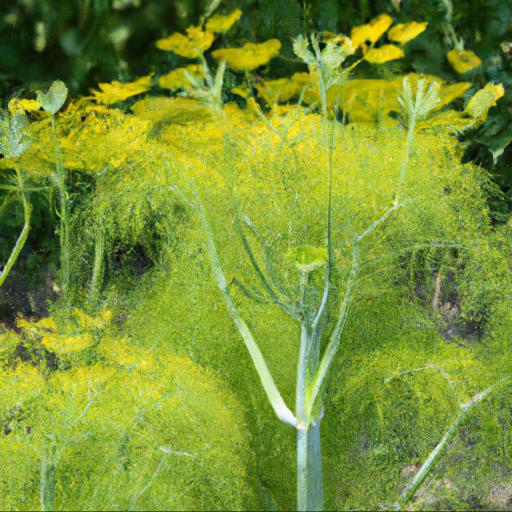Foeniculum vulgare, more commonly known as fennel, is a medicinal herb with a long history of use in traditional medicine. It has been used to treat a variety of ailments, from digestive issues to respiratory problems.
It has also been used as a natural remedy for skin conditions, as well as a flavor enhancer in cooking. In this blog, we will explore the many benefits of this powerful herb and how it can be used to improve overall health and wellbeing. We will also look at how to incorporate it into your diet and lifestyle, as well as potential side effects and precautions.
Health benefits of foeniculum vulgare

Foeniculum vulgare, commonly known as fennel, has been used medicinally for thousands of years and is one of the oldest recorded herbs. The plant is native to the Mediterranean but has been cultivated worldwide.
The plant has a unique flavor and its aromatic qualities appeal to both humans and animals. It is a powerful source of health-promoting compounds and has various uses in modern day herbal remedies. Foeniculum vulgare is mainly known for its culinary uses, as it can be found in Italian sausages, soups, and fish dishes.
The fresh leaves of the plant are sometimes used to flavor salads and dishes, but the most common use for the plant is in its dried form, which is commonly used in baking, drinks and teas. Fennel contains several active constituents, the most important being anethole, which gives it its characteristic flavor and aroma.
Other constituents include melatonin, linoleic acid, and vitamin C. Foeniculum vulgare has a well-deserved reputation for being a highly beneficial medicinal herb. Studies have shown that it can be beneficial for digestion, as it is a carminative herb which can help to reduce gas and bloating.
The high levels of anti-oxidants within the plant can be used to help combat inflammation in the body and may also help to protect against certain diseases. In addition, fennel has been said to be beneficial for eyesight and can even help maintain mental clarity. It is also believed to be helpful in reducing anxiety and fighting insomnia.
Overall, fennel is a potent source of health-promoting compounds that may help reduce the risks of many health conditions. With its mild flavor and aroma, it is no surprise that it has established itself as an essential ingredient in many dishes around the world.
Not only is it flavorful and aromatic, it is also a great way to give your body the total health support it needs.
Culinary uses of foeniculum vulgare

use. Foeniculum vulgare, otherwise known as fennel, is one of the most widely-used culinary herbs in the kitchen. It has a mild, anise-like flavor that makes it particularly popular in both Mediterranean and Indian cuisine.
The flavor works especially well when paired with fish, especially grilled or baked varieties like salmon or tuna. Fennel bulbs are often sliced and diced and then added to salads, stews, and soups, where their fresh and slightly licorice-like aroma can truly shine.
Sautéed fennel is also a tasty addition to many dishes, especially those with a rich tomato-based sauce. Fennel can also be pickled for an added flavor boost.
It makes an excellent addition to salads and grain bowls, as well as a wonderful accompaniment to charcuterie boards. But it’s not just the flavor of fennel that makes it so desirable in the kitchen; it also provides a range of health benefits. Fennel is high in dietary fiber, which helps promote gut health, and it also contains the nutrients vitamin C, potassium, phosphorus, and vitamin B
As a final note, it’s important to note that fennel is not just reserved for the kitchen. It makes a beautiful addition to the garden, with its tall stalks of feathery leaves and its sweetly scented flowers. It’s a great choice for both novice and experienced gardeners alike, and it’s sure to bring tons of color, texture, and flavor to any outdoor space.
Growing and harvesting foeniculum vulgare

Foeniculum vulgare, commonly known as Fennel, is an herb that is prized for its aroma, flavor, and multiple culinary uses. It is a welcome addition to many culinary delights, ranging from dal dishes to salads. Its strong anise-like flavor adds a subtle yet complex note to many dishes.
Fennel is a hardy perennial, and the bulbous base is the part that is usually used in cooking. Fennel is easy to grow, and can yield a generous harvest when treated right.
To start your Fennel garden, you’ll need to purchase seeds, as Fennel does not propagate from cuttings. Soil should be well-drained, Fennel does not appreciate standing water, and a slightly acidic soil is preferred. Plant the seeds in rows, 1-2 inches apart, and then cover them with a very thin layer of soil.
When germinated, the leaves look like stiff feathers. Once seedlings have achieved a few inches of growth, thin them out to approximately 8-10 inches apart.
Fennel prefers a sunny and sheltered location, and the soil should be kept relatively moist but not overly wet. While the bulbs are growing, you can enjoy the attractive feathery fronds as an ornamental element in your garden.
As they continue to grow, they’ll become tougher and develop a more pronounced flavor. When the bulbous section starts to swell, it is time to harvest. You can either lift the entire plant or just the bulbs.
Use a small shovel or trowel to lift them, and cut away the foliage. The bulbs can be enjoyed either fresh, frozen, or dried. Fennel stores well and will last up to a month in a refrigerator. Growing Foeniculum vulgare, commonly known as Fennel, is a straightforward and rewarding experience that provides a wonderful harvest of edible bulbs, as well as attractive foliage for your garden. Ready for a challenge? Try your hand at growing Fennel and enjoy the many flavors and uses it has to offer.
Our video recommendation
Final Touch
Foeniculum vulgare, commonly known as fennel, is a flowering plant species in the carrot family. It is native to the Mediterranean region, but is now widely cultivated for its edible, strongly flavored leaves and seeds. Fennel has a wide range of culinary uses and is popular in Mediterranean, Indian, and Chinese cuisines.
It is also used medicinally to treat various ailments, including indigestion, colic, and respiratory conditions. Fennel is a nutritional powerhouse, providing a good source of dietary fiber, vitamins, and minerals.
FAQ
What are the health benefits of Foeniculum vulgare?
Foeniculum vulgare, commonly known as fennel, is a plant with many health benefits. It is a rich source of dietary fiber, vitamins, minerals, and antioxidants. It has been used to treat digestive issues, reduce inflammation, and improve heart health. Fennel may also help reduce the risk of certain cancers, improve skin health, and boost the immune system.
What are the culinary uses of Foeniculum vulgare?
Foeniculum vulgare, also known as fennel, is used in a variety of culinary dishes. It can be used in salads, soups, stews, and sauces. It can also be used as a seasoning for fish, poultry, and vegetables. Fennel is also used to make tea and can be used to flavor liqueurs and other alcoholic beverages.
How is Foeniculum vulgare used in traditional medicine?
Foeniculum vulgare, also known as fennel, is used in traditional medicine for its anti-inflammatory, antispasmodic, carminative, and diuretic properties. It is used to treat digestive issues, respiratory ailments, and skin conditions. It is also used to boost the immune system, reduce stress, and improve circulation.
What are the chemical constituents of Foeniculum vulgare?
The chemical constituents of Foeniculum vulgare include essential oils such as anethole, fenchone, estragole, limonene, and myrcene. It also contains flavonoids, phenolic acids, and coumarins.
How is Foeniculum vulgare grown and harvested?
Foeniculum vulgare is typically grown from seed and harvested when the seed heads turn brown. The seeds can then be collected and dried for use in cooking.
What are the potential side effects of consuming Foeniculum vulgare?
The potential side effects of consuming Foeniculum vulgare include nausea, vomiting, abdominal pain, diarrhea, and skin irritation. It may also interact with certain medications, so it is important to consult a healthcare provider before consuming it.

